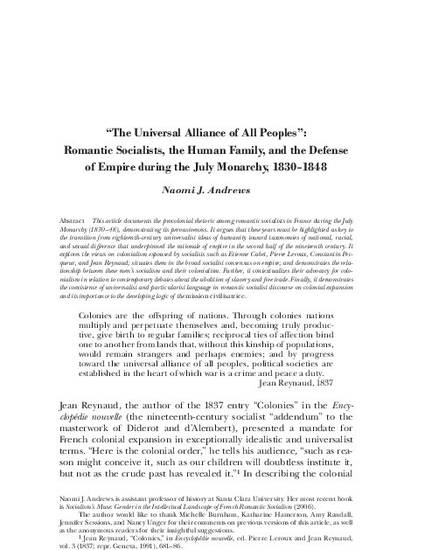
This article documents the procolonial rhetoric among romantic socialists in France during the July Monarchy (1830-48), demonstrating its pervasiveness. It argues that these years must be highlighted as key to the transition from eighteenth-century universalist ideas of humanity toward taxonomies of national, racial, and sexual difference that underpinned the rationale of empire in the second half of the nineteenth century. It explores the views on colonialism espoused by socialists such as Etienne Cabet, Pierre Leroux, Constantin Pecqueur, and Jean Reynaud; situates them in the broad socialist consensus on empire; and demonstrates the relationship between these men's socialism and their colonialism. Further, it contextualizes their advocacy for colonialism in relation to contemporary debates about the abolition of slavery and free trade. Finally, it demonstrates the coexistence of universalist and particularist language in romantic socialist discourse on colonial expansion and its importance to the developing logic of the mission civilisatrice.
